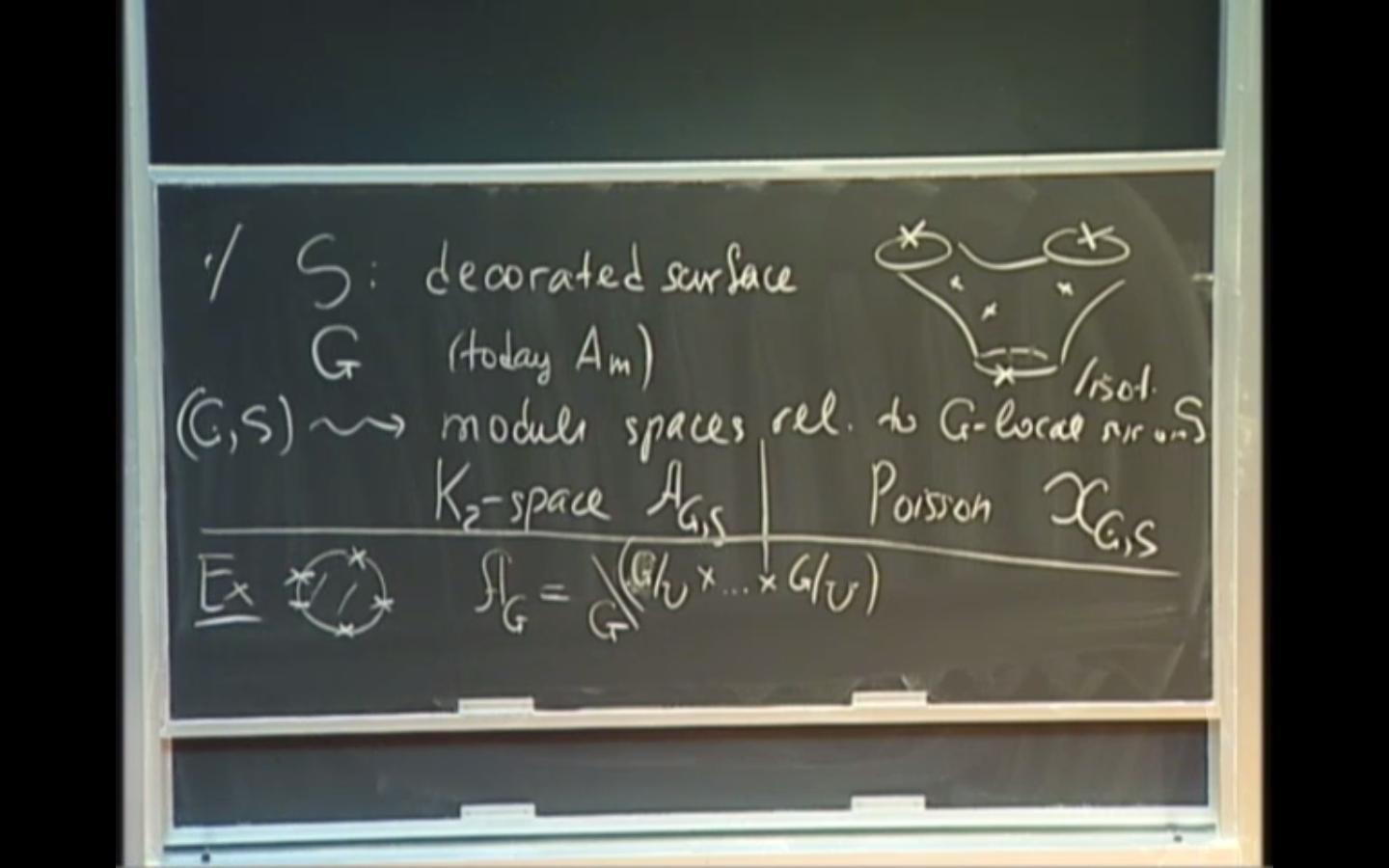Ideal webs, moduli spaces of local systems, and 3d Calabi-Yau categories
Presenter
November 20, 2014
MSC:
- 11R39
- 11Rxx
- 14D24
- 14D23
- 14Dxx
- 14-xx
Abstract
We develope a uniform way to parametrise canonical bases in various vector spaces which appear in representation theory, for instance invariants in tensor products of representations of a reductive group G.
In all cases there is an underlying dual pair of moduli spaces M(G) and M*(G^L) related to the group G and the Langlands dual group G^L. Each of the spaces has a natural positive structure. Furthermore there is a positive function W on one the space M(G), the potential. The pair (M(G), W) allows to define a set of positive integral tropical points.
We show that it parametrise a canonical bases in the vector space of regular functions on the dual space. We suggest that this parametrisation is a manifestation of homological mirror symmetry between the Landay-Ginzburg model on (M(G), W) and the dual space.
For example, in the case when the vector spaces are finite dimensional representations of G, we get the Mirkovic-Vilonen basis.
The corresponding mirror picture for SL(n) turns out to be just the one developed by Givental (1994) describing quantum cohomology of flag varieties via Toda integrable systems. For other groups we get a similar description developed by Rietsch, Gerasimov-Lebedev-Oblezin, and others.
This is a joint work with Linhui Shen (Northwestern University)
